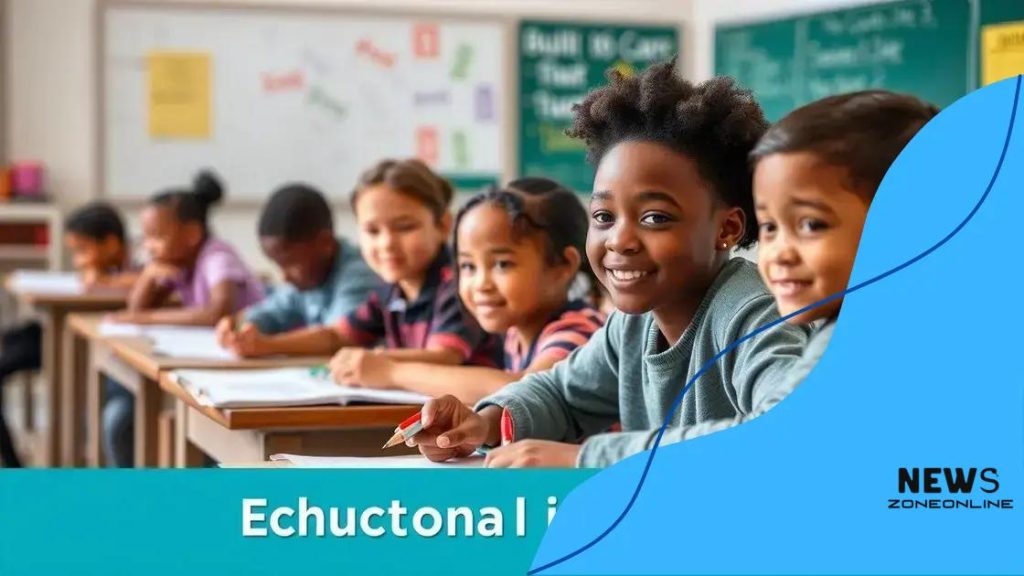Education voucher abuse monitoring: why it matters now

Education voucher abuse monitoring is essential for maintaining accountability and integrity in educational systems, helping to prevent misuse and ensuring that funds are used appropriately for eligible students.
Education voucher abuse monitoring is increasingly becoming a critical topic in discussions about educational integrity. Have you ever wondered how misuse can affect the quality of education? In this article, we will dive deeper into the subject and unravel its implications.
Understanding education vouchers
Understanding education vouchers is crucial for grasping the challenges and opportunities in the education system. These vouchers allow parents to use public funding for private school tuition, influencing how education is accessed and delivered.
Education vouchers can empower families to choose schools that best fit their children’s needs. However, there are debates regarding their effectiveness and impact on public schools.
Key Benefits of Education Vouchers
One primary advantage of education vouchers is increased parental choice. Families can select schools based on their unique values and educational goals. Moreover, competition among schools can potentially boost quality.
- Enhanced educational opportunities for students
- Increased accountability among schools
- Encouragement of diverse educational approaches
Despite the benefits, it is essential to also consider the drawbacks. These vouchers may divert funds from public schools, leading to inequalities in education. Additionally, not all private schools may offer the same level of quality or accessibility.
Challenges in the Voucher System
Understanding the challenges is vital for addressing potential issues surrounding education vouchers. Transparency and regulation are necessary to prevent misuse and ensure that funds are utilized effectively.
- Potential for fraud and misuse of vouchers
- Difficulty in measuring academic outcomes
- Equity concerns among disadvantaged communities
To maximize the benefits of education vouchers, stakeholders must collaborate to create a balanced system that supports all students. By monitoring and regulating the implementation of vouchers, the focus can remain on improving educational outcomes.
Common forms of abuse
Understanding the common forms of abuse related to education vouchers is essential for improving the system. Various types of misuse can undermine the intended benefits of this funding model.
One prevalent form of abuse is fraudulent claims. Some individuals may submit fake receipts or manipulate records to obtain funds improperly. This not only impacts the budget but also affects students who genuinely need support.
Types of Voucher Abuse
Another common issue is the use of vouchers for non-eligible expenses. Families sometimes attempt to spend voucher money on items or services that do not qualify. This misuse can lead to confusion and audit concerns.
- Misrepresentation of the student’s eligibility
- Using vouchers for unauthorized tuition payments
- Claiming expenses for non-educational purposes
Furthermore, some schools may engage in deceptive practices to attract voucher students. They might advertise misleading academic performance metrics or promise services that are not provided, resulting in a lack of accountability.
Consequences of Abuse
The consequences of voucher abuse can be severe. Schools may lose funding, which directly affects educational quality. Additionally, students relying on these funds may miss out on valuable opportunities.
- Decreased quality of education
- Increased scrutiny and regulation from authorities
- Loss of trust among families and communities
Addressing these common forms of abuse is critical. Effective monitoring systems and transparent regulations can help ensure that education vouchers serve their intended purpose.
Impact on students and education systems

The impact on students and education systems from the use of education vouchers is significant. These vouchers can create both opportunities and challenges for the educational landscape.
One of the main effects of education vouchers is the increase in school choice. Families can select schools that align with their values and educational goals. This can lead to a better fit for students, helping them to thrive academically.
Positive Impacts on Students
Education vouchers can provide access to higher-quality educational options. Many private schools offer specialized programs that can cater to diverse learning needs.
- Enhanced learning environments
- Access to specialized programs and resources
- Opportunities for personal growth and development
Moreover, the competition generated by vouchers may improve public schools. When schools face potential loss of funding due to students leaving for other options, they often strive to enhance their offerings.
Challenges for Education Systems
However, the effects of vouchers are not solely positive. There are challenges that arise when implementing these systems. One major concern is the financial strain it can put on public schools.
- Potential loss of funding for public schools
- Increased pressure on schools to improve quickly
- Greater risk of segregation in schools
The shift to a voucher system can lead to disparities in educational quality, with some schools thriving while others struggle. Addressing these challenges is essential to ensure that the benefits of education vouchers reach all students.
Monitoring techniques and strategies
Effective monitoring techniques and strategies are crucial for ensuring the proper use of education vouchers. These techniques help maintain accountability and prevent misuse within the educational system.
One primary strategy is the implementation of regular audits. Schools participating in the voucher program should undergo audits to verify that funds are used appropriately. This process ensures compliance with regulations and helps identify instances of fraud.
Key Monitoring Techniques
Another effective method involves data tracking. By collecting data on voucher usage, authorities can analyze trends and pinpoint areas needing improvement. This information is vital for developing policies that support fair practices.
- Utilizing software for tracking voucher transactions
- Regularly reviewing eligibility criteria and outcomes
- Collecting feedback from families and students
Peer evaluations can also serve as a valuable monitoring tool. Involving educators in the assessment of schools that accept vouchers fosters a sense of community accountability and encourages best practices.
Strategic Policy Recommendations
Governments and educational organizations should consider developing clear guidelines for monitoring. Establishing standardized reporting systems across different regions can enhance transparency and ease the comparison of results.
- Creating a centralized database for tracking
- Training staff on compliance and reporting
- Encouraging collaboration between public and private institutions
By adopting these monitoring techniques and strategies, stakeholders can promote the integrity of the education voucher system, ensuring it serves all students effectively.
Policy recommendations for improvement
Policy recommendations for improvement are essential to enhance the effectiveness of education vouchers. By implementing thoughtful policies, stakeholders can safeguard the interests of students and schools alike.
One key recommendation is to establish clear guidelines for eligibility and funding distribution. This ensures that vouchers are directed to students who genuinely need financial support. Transparency in the allocation process can build trust among families.
Enhancing Oversight and Regulations
Improving oversight can help combat misuse of voucher funds. Regular audits should be mandated for all participating schools. These audits will ensure compliance and help identify areas for improvement or concern.
- Implementing routine financial audits
- Requiring detailed reporting from voucher-accepting schools
- Creating a public database of voucher usage
Another important aspect is to encourage collaboration between public and private schools. Both systems can learn from each other. This partnership can lead to innovative strategies that benefit students and improve educational outcomes.
Training and Support for Schools
Providing training and resources for schools on best practices is vital. Teachers and administrators should be equipped with the necessary skills to implement and manage vouchers effectively. Training programs can focus on areas such as:
- Understanding compliance requirements
- Developing accountability measures
- Engaging with communities
Furthermore, establishing a feedback loop with parents, students, and educators can enhance the impact of vouchers. Listening to the experiences of those involved can lead to valuable insights for ongoing policy development. Continuous improvement efforts are essential for keeping the voucher system responsive and effective.
FAQ – Common Questions about Education Voucher Monitoring
What is an education voucher?
An education voucher is a certificate that allows parents to use public funding for private school tuition, giving them more choices in education.
How can abuse of education vouchers occur?
Abuse can happen through fraudulent claims, using funds for non-eligible expenses, or misrepresenting a student’s eligibility.
What monitoring techniques are effective for education vouchers?
Regular audits, data tracking, and peer evaluations are effective techniques to monitor voucher usage and ensure compliance.
Why is collaboration between schools important?
Collaboration allows public and private schools to share best practices, improving educational outcomes for all students.





